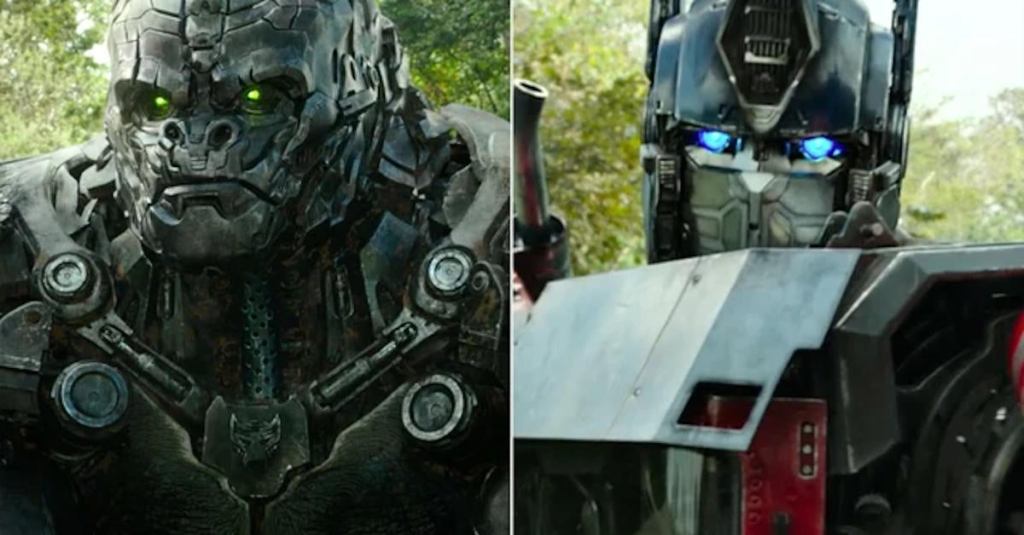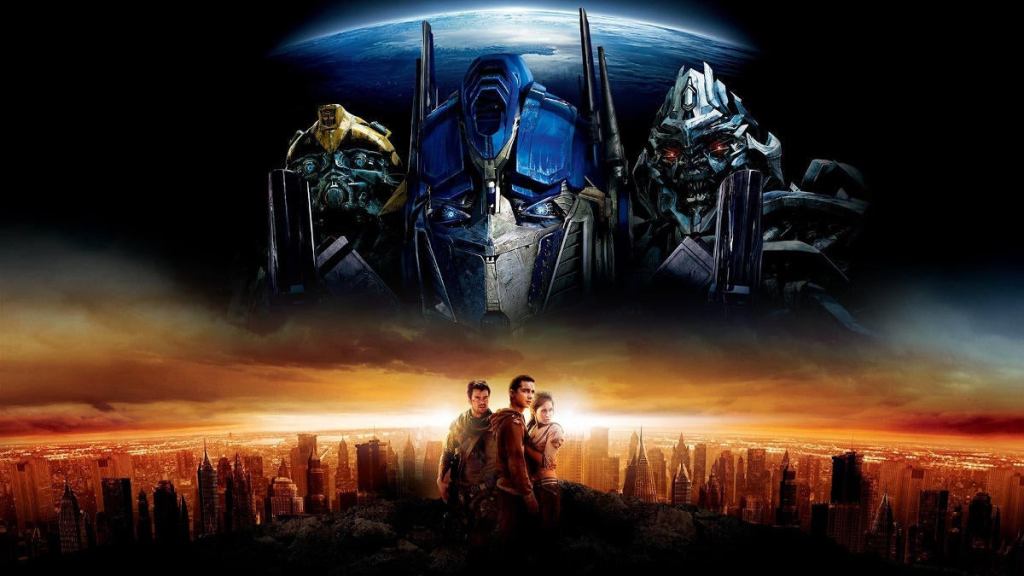The Transformers: Rise of the Beasts trailer has been released, giving fans their first at this new chapter of the Transformers franchise, which is based in part on the popular Beast Wars series of the 1990s. So far, it looks like fans are loving Transformers: Rise of the Beast in terms of style, action, and character designs. That said, one thing is also clear in the first reactions to Rise of the Beast’s trailer: fans have a lot of confusion about where it fits in the larger Transformers movie continuity.
Videos by ComicBook.com
How Does Rise of the Beasts Fit Into The Transformers Movie Continuity?

Transformers: Rise of the Beasts is set in the 1990s, and is a sequel to the previous film the franchise released, Transformers: Bumblebee (2018). Bumblebee was, in itself, a soft reboot of the Transformers franchise, after the fifth film in Michael Bay’s Transformers film series, Transformers: The Last Knight (2017). Basically, Bumblebee was approached as a prequel to the events of Bay’s films, but it also paved over certain elements of Bay’s continuity, like when Optimus Prime first came to Earth (the 1980s vs. 2000s). That said, other ideas from Bay’s continuity (like Bumblebee having been an Autobot agent on Earth for decades, or his broken voice) were included in the prequel story.
Is Transformers: Rise of the Beasts Connected to Michael Bays Films?

That’s still a murky question. As stated, Rise of the Beasts is definitely set in the same continuity as Bumblebee, just years later. Since Bumblebee contained clear traces of Michael Bay’s Transformer movie DNA in its story and design, it’s definitely debatable whether all of the films truly fit into one continuity.
Soft Reboot” approaches let franchises pick and choose what they want to keep or not, and Transformers is certainly doing that. The closest comparison would be the 20th Century Fox X-Men movies under Fox, which did an initial trilogy before soft rebooting the series with X-Men: First Class, and following that with a sequel, X-Men: Days of Future Past. However, Days of Future Past was also a film that used a time travel story to bring the original franchise and soft-rebooted continuity together and close the gap in canon. Oddly enough, Transformers: Rise of the Beasts could be doing just that…
Is Transformers: Rise of the Beasts A Reboot?

Transformers: Rise of the Beasts is labeled as a sequel to Bumblebee, but there have been a lot of rumblings and theories that the film (first of a new trilogy) is going to be (another) soft-reboot of the franchise, possibly using the device of time travel and alternate futures as means to make both Bay’s films and the rebooted Bumblebee/Beast Wars timeline all part of one big Transformers multiverse.
The theory goes that while Rise of the Beasts presents the Maximals as an ancient Transformers power that is waking up, they are actually from an alternate future or timeline, and traveled back in time to avert an apocalyptic event. The “Terracon” villains in the films are suspected to be just the first agents of a darker power, which could be fan-favorite Transformers big-bad Omicron, or something else entirely.
So, the final answer is that like X-Men: Days of Future Past, Transformers: Rise of the Beasts may be the nexus point that brings all the live-action Transformers movies together, and then starts an entirely new timeline of Transformers movies, going forward. That scenario would also make sense, considering that Paramount Pictures has multiple Transformers movie projects in development; Rise of the Beasts establishign that multiple Transformers timelines exist would free up the franchise from having to explain how different projects connet or not – hopefully requiring fewer of these articles.
Transformers: Rise of the Beasts has a release date of June 9, 2023.








